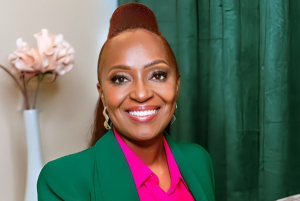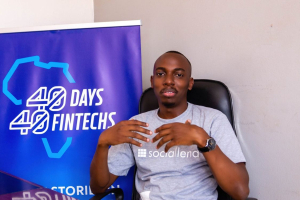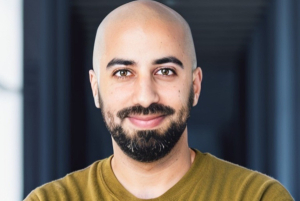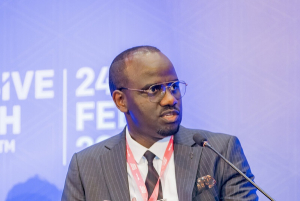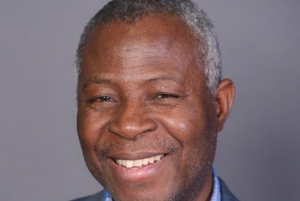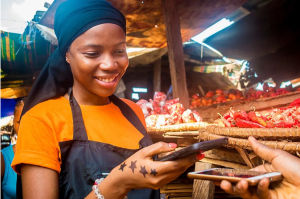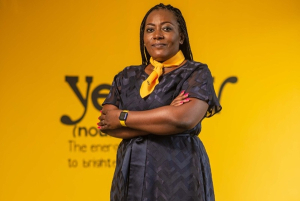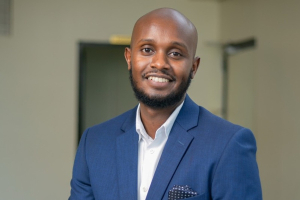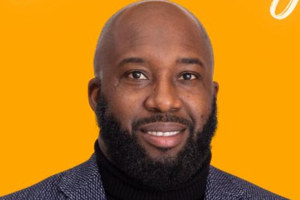10mg Credit Boosts Nigerian Healthcare Access with AI-Powered Financing
-
10mg Credit, a Nigerian fintech solution, offers instant, collateral-free credit to healthcare providers for medical supplies.
-
The platform leverages AI to assess creditworthiness, approving most applications within minutes.
-
Since its launch, 10mg Credit has financed over 6,000 healthcare providers, disbursing more than $3.4 million.
Access to financing remains a significant hurdle for small and medium-sized enterprises across Africa. In Nigeria, a nascent startup has introduced a solution specifically targeting the healthcare sector.
10mg Credit, a fintech solution developed by Nigerian startup 10mg Health, provides instant, collateral-free credit to healthcare facilities. These facilities use the credit to procure medicines and medical equipment. Christian Nwachukwu founded the startup in 2022.
The company said its AI-driven system quickly analyzes transaction histories to approve most applications within minutes, eliminating paperwork and delays, and provides flexible, transparent repayment plans to help users manage expenses without stress.
Healthcare establishments can opt for 10mg Credit when making purchases, either through its platform or via partner distributors. The approval process relies on AI technology, which evaluates applicants' creditworthiness in real-time. This system grants credit within minutes, requires no physical collateral, and offers repayment terms tailored to each facility's cash flow.
By enabling hospitals to pre-finance purchases, 10mg Credit helps reduce service interruptions and enhances the healthcare system's resilience. Since its inception, the solution claims to have financed over 6,000 healthcare providers, with a total volume exceeding $3.4 million and a loan approval rate near 60%. However, the startup faces challenges in managing repayment risk, securing data, and extending coverage to less connected areas.
Regarding data protection, the startup asserts it only collects information necessary for fair and instant decisions, "encrypting it end-to-end for maximum protection."
This article was initially published in French by Adoni Conrad Quenum
Adapted in English by Ange Jason Quenum
Kenyan Entrepreneur Serah Mwikali Katusya Expands Africa’s Digital Marketing Footprint
Kenyan entrepreneur Serah Mwikali Katusya is helping African businesses scale their digital presence through Belva Digital, a technology marketing agency she founded in 2013.
The firm provides end-to-end services in content marketing, SEO, UX/UI design, app development, digital advertising and organizational transformation. Its team combines data, strategy, media and tech expertise to support clients ranging from startups to large corporations.
Belva Digital has rolled out AXIS, an integrated platform that centralizes customer engagement across Facebook, WhatsApp, SMS and Instagram, and launched GrowthLab, a subsidiary focused on digital transformation and performance optimization.
Beyond Belva Digital, Katusya has founded or co-founded several ventures. In 2023 she launched WildMango, a branding and organizational development company, and ChangeKraft, a consultancy for institutions. In 2024, she co-created Muse Money Africa, a digital finance platform.
Her career began in 2004 as brand manager at Sarova Hotels in Kenya. She later worked as media director at WPP-Scangroup (2012–2013), and from 2016 to 2021 served as managing director for Sub-Saharan Africa at EssenceMediacom, a global marketing agency.
Katusya holds an advanced diploma in mass communication from the Kenya Institute of Mass Communication (2004) and a master’s degree in strategy, organizational management, leadership and social entrepreneurship from Hult International Business School (2024).
Recognized for her leadership, she was named among Kenya’s most influential women in marketing in 2022 and won the award for Best CEO in MarTech in 2024.
Her trajectory highlights how local initiatives in marketing technology are driving Africa’s digital growth and supporting businesses adapting to a rapidly changing marketplace.
This article was initially published in French by Melchior Koba
Adapted in English by Ange Jason Quenum
Ugandan Tech Entrepreneur Marvin Peter Akankwasa Builds Fintech Bridges for African SMEs
Ugandan entrepreneur Marvin Peter Akankwasa is reshaping access to finance in Africa with digital platforms designed to link small businesses directly with lenders.
Akankwasa is the founder and CEO of Social Lend Africa, a fintech startup launched in 2019 that uses artificial intelligence to connect entrepreneurs with investors, bypassing traditional banking bottlenecks. The platform tailors loan rates through proprietary algorithms while providing lenders with risk assessments to secure their investments.
Borrowers must submit identity details, proof of residence, tax certificates and business documents, while lenders only need to verify the source of their funds. The company primarily targets small and medium-sized enterprises (SMEs) that often struggle to secure credit.
In 2023, Akankwasa also launched Highlend, a startup developing credit decisioning technology aimed at helping financial institutions manage risk. The company has set a target of working with 10,000 financial institutions across 10 African markets by 2033.
His entrepreneurial track record spans beyond fintech. In 2015, he founded African Food Vending Solutions, a fast-food distribution venture. Three years later, he co-founded Ugabus, an intercity bus network and online booking platform, which was acquired in 2021 by transport startup Treepz. Following the acquisition, he served as head of legal and general affairs at Treepz until 2023.
This article was initially published in French by Melchior Koba
Adapted in English by Ange Jason Quenum
With Konnect Networks, Amin Ben Abderrahman Simplifies Financial Flows for SMEs
Digital finance is rapidly evolving across Africa, driven by local initiatives that are reshaping how businesses and individuals interact with money. Young entrepreneurs are creating solutions tailored to the continent’s unique needs.
Amin Ben Abderrahman is a Tunisian entrepreneur at the forefront of Africa’s fintech sector. He is the co-founder and CEO of Konnect Networks, a start-up specializing in financial technology.
Founded in 2021, Konnect Networks aims to simplify complex financial flows and support the growth of businesses of all sizes through diversified, intuitive, and secure payment solutions.
The platform offers a range of services, including payment gateways, digital wallets, and financial inclusion tools. It enables individuals and businesses to send, receive, and manage payments in real time. Konnect supports transactions both online and in-person via instant payment links, e-commerce API integrations, QR code payments, and real-time notifications. Merchants benefit from an advanced administrative interface, multi-account management, and personalized support.
Konnect states, “We believe everyone should have equal access to financial opportunities. Our commitment is to promote inclusion by providing accessible financial solutions that enable individuals and businesses to access quality financial services, regardless of their background or location.”
Amin Ben Abderrahman earned an engineering degree in IT consulting and management from CY Tech in France in 2010. He began his career in 2012 at the Royal Bank of Scotland in Scotland as a quality manager for financial services.
In 2016, he joined Swiss fintech Leonteq as a risk and finance data specialist. The following year, he became a technical manager at Mars, the confectionery manufacturer. He then worked as a senior consultant for BeeSoSmart Consulting in Paris and later for OneStream, a fintech company based in the UK.
Melchior Koba
Rwandan Fintech Entrepreneur Félix Nkundimana Expands Access to Credit and Digital Transactions
Rwandan entrepreneur Félix Nkundimana is reshaping access to finance through Jali Finance, the Kigali-based fintech he co-founded in 2017. The company specializes in asset financing via leasing, with a strong focus on electric motorcycles, supporting both local production and job creation under the “Made in Rwanda” label.
In February 2025, Jali Finance launched JaliKoi, a multi-service “super app” designed to centralize financial and commercial services for individuals and businesses. The platform offers affordable loans with flexible repayment terms for items such as motorcycles and vehicles. It also integrates a cashback feature, rewarding users for every transaction — from retail purchases to utility bills and mobile services — with credits that can be reused for future payments.
Nkundimana also runs Jali Partners, a professional services firm in Kigali, and serves as president of the Association of Credit Service Providers, which brings together Rwanda’s non-deposit-taking financial institutions.
A graduate of the University of Rwanda with a bachelor’s degree in accounting and finance (2011), he earned an MBA from the U.S.-based Quantic School of Business and Technology in 2024. His career began at the Rwanda Revenue Authority, where he worked as an auditor from 2010 to 2013.
This article was initially published in French by Melchior Koba
Adapted in English by Ange Jason Quenum
Burkinabe Entrepreneur Sény Ganemtore Streamlines West African SME Transactions
-
Sény Ganemtore's Mtopo Payment Solutions simplifies West African SME transactions.
-
The fintech startup offers mobile money processing and digital management tools.
-
Conekto app provides real-time transaction tracking, enhancing productivity for businesses.
Sény Ganemtore, a Burkinabe electronics engineer with extensive experience in telecommunications and mobile payments, is the founder and CEO of Mtopo Payment Solutions, a financial technology startup. Established in 2016, Mtopo Payment Solutions focuses on mobile money payment processing and developing management tools to support the digitalization of small and medium-sized enterprises (SMEs) across West Africa.
The company offers several digital solutions designed to enhance productivity and optimize internal management for businesses. Among these, Conekto is an application that simplifies daily life for its users by streamlining purchases, mobile wallet management, and centralizing digital operations. The platform provides real-time transaction tracking through SMS and email notifications.
Ganemtore is an alumnus of the Institut National Supérieur de l’Enseignement Technique (INSET) in Yamoussoukro, Côte d’Ivoire, where he earned a master’s degree in electrical, electronic, and communications engineering in 1994.
His career began in 1997 at Loteny Telecom as a regional maintenance manager in Yamoussoukro. He later became head of operations and maintenance in Abidjan in 1998, and then head of the radio and optimization division between 2001 and 2005. Prior to founding Mtopo Payment Solutions, he held several positions in various telecommunications companies.
This article was initially published in French by Melchior Koba
Adapted in English by Ange Jason Quenum
Digital Savings Soar in Africa, but Mobile Credit Stalls, World Bank Finds
While millions of Africans have embraced mobile money for savings, its adoption for credit remains modest. This is primarily due to the persistence of informal lending practices, even as new innovations begin to emerge.
Mobile money has become a transformative force for financial inclusion in Africa, yet its full potential remains untapped. While the service has excelled at providing a platform for savings, it has made little headway in providing widespread access to credit. The Global Findex Database 2025, published by the World Bank, shows the share of African adults with a mobile money account soared from 27% to 40% in just three years, reaching the highest rate globally. The report found that 23% of African adults saved using their mobile accounts in 2024, nearly double the rate of 13% in 2021.
The report also shows that 35% of African adults overall reported saving digitally or through traditional institutions. In countries with large mobile money economies like Ghana, Kenya, Senegal, and Uganda, more than 50% of adults use mobile money for savings, signaling a massive adoption of the service.
Mobile money is more accessible than traditional banking networks, making it easier to save small amounts and providing flexible deposits and withdrawals through local agents. This has led to more inclusive adoption, especially in rural and informal settings.
Savings Succeed, Credit Stalls
Despite the success of savings, access to credit through mobile money remains very limited. In 2024, only 7% of African adults borrowed through their mobile accounts, a figure that has remained stable since 2021. By contrast, nearly 59% of adults across the continent used some form of credit, though primarily through informal means like family or savings clubs.
In major mobile money markets like Kenya, Ghana, and Uganda, 22% to 32% of adults have borrowed through a mobile operator. However, these loans are typically small, short-term, and often carry high interest rates, which limits their overall economic impact.
Several factors explain this disconnect. According to the World Bank, regulatory authorities remain cautious, fearing over-indebtedness or fraud. The organization also points to business models that favor less-risky deposits and payments over credit.
The report also reveals that customers themselves are hesitant to borrow through platforms not well known for lending due to distrust, limited financial literacy, or overly strict eligibility simulators.
Innovations and Lingering Limits
While some specialized fintech and mobile platforms are gradually expanding their offerings through alternative credit scoring and nano-loans for micro-entrepreneurs, a mass-market for inclusive digital credit has yet to emerge. The report notes that countries with close cooperation among mobile operators, banks, and regulators, such as Kenya, are making progress, but elsewhere, advancement is slow.
The challenge now is to pair access to digital savings with policies for financial literacy, consumer protection, and regulatory innovation. The goal is to advance credit access without making already vulnerable populations more fragile.
For the World Bank, mobile money's full potential in Africa will only be unlocked when it contributes as much to productive investment as it does to savings security. This requires building customer trust and analytical skills regarding digital credit offers, improving interoperability between services and institutions, and adapting credit to local economic realities while minimizing associated risks.
Melchior Koba
Angela Ngo Ndouga Enables Instant Cash from SME Invoices in Cameroon
Angela Ngo Ndouga has spent over 15 years studying the weaknesses in corporate finance. From Paris to Douala, she followed a clear path: first understanding the systems, then fixing their flaws.
A Cameroonian entrepreneur, Angela specialises in alternative financing and factoring across Africa. She co-founded Yellow Factoring, a fintech company launched in 2021.
Yellow Factoring digitises trade receivables to help small and medium-sized enterprises (SMEs) access quick cash. The platform allows companies to upload invoices, which Yellow Factoring reviews to verify and assess risk. It advances up to 80% of the invoice value in under 72 hours. The firm then manages collection and assumes the risk of non-payment.
Beyond cash advances, Yellow Factoring also provides administrative support, receivables management, financial training, and sector-specific tools for retail, import-export, and agri-food businesses.Yellow Factoring prioritizes small and medium-sized enterprises (SMEs) often left out of short-term financing, focusing especially on women-led businesses. The company collaborates with partners such as Afreximbank, the European Union, and the I&P Accélération programme in Africa.
By leveraging digital tools, Yellow Factoring automates processes, ensures operational transparency, and smooths interactions between entrepreneurs and creditors.
Before starting Yellow Factoring, Angela Ngo Ndouga co-founded Lusis & Co, a Cameroonian consultancy focused on operational performance and credit management, where she served as deputy managing director from 2016 to 2021.
She holds a master’s degree in international financial management from the Paris School of Business (2011). Angela began her career in 2008 at Société Générale Factoring in Paris as an international account manager. In 2011, she joined Coface Cameroon, a trade credit risk management firm, progressing from Factoring Account Manager to Head of the Factoring Department in 2014.
Melchior Koba
Daniel Kagame Ndahiro Champions Funding Solutions for African SMEs
Daniel Kagame Ndahiro studies the challenges faced by small businesses and designs solutions to address their needs. With Credify Africa, he targets the financing obstacles that limit growth for these enterprises.
As entrepreneur and CEO of Credify Africa, founded in 2015, Ndahiro leads a fintech focused on helping African small and medium-sized enterprises (SMEs). The company specialises in SME financing, international trade, and logistics services. It aims to simplify credit access and smooth international transactions for local businesses facing multiple growth barriers.
Credify Africa has positioned itself as a key player in supply chain optimisation. It offers integrated services including invoice advances, real-time multi-currency payments, customs assistance, and freight management.The platform automates the entire process from registration to decision-making using scoring tools tailored for the African market. This system shortens disbursement times, eases access to finance, and cuts down on administrative steps.
Thanks to these innovations, Credify Africa lets SMEs complete international payments swiftly, bypassing usual currency conversion hurdles and banking delays. The company also provides tailored support to help clients manage cash flow and organize their finances efficiently. Additionally, it offers training programs to boost entrepreneurs’ skills in using digital tools.
Before launching Credify Africa, Daniel Kagame Ndahiro built strong financial sector experience. He earned a bachelor's degree in economics and finance from the University of Cape Town in 2011. Ndahiro began his career in 2012 as a director at Camouflage Media. In 2015, he co-founded Shaka Capital, a Ugandan microfinance firm focused on asset financing, which he led until 2018.
This article was initially published in French by Melchior Koba
Edited in English by Ange Jason Quenum
Nigerian Fintech CEO Charles Oligbo Reinvents Banking from the U.S. with Virtual Branches
Charles Oligbo, a Nigerian fintech entrepreneur based in the United States, rethinks how banks connect with their customers through digital innovation. He founded and leads Sawport Inc, a company that modernizes banking by creating virtual branches powered by artificial intelligence.
Since its launch in 2021, Sawport developed a platform that replicates physical bank interactions online. The “Virtual Branch” environment allows customers to communicate with advisors in real time via videoconference, eliminating the need for traditional phone calls or emails.
The platform integrates multiple features, including audio and video calls, instant messaging, appointment scheduling, automatic call-back, identity verification, facial recognition, electronic signatures, omnichannel management, real-time translation, and automated multilingual support.
In addition to running Sawport, Oligbo serves on the executive committee of the North American Fintech Coalition. This group supports credit unions and community banks across the US and Canada, advancing technology adoption.
Oligbo holds a bachelor’s degree in computer and electrical engineering from the University of Akron and a bachelor’s in computer and information sciences plus a master’s in management information systems from Park University.
He began his career in 2005 with an electrical engineering internship at FirstEnergy, a US utility company. He then worked as a support engineer at IT firm VeeMost Technologies in 2008. In 2013, he became digital project manager for Seattle’s public administration. In 2015, Oligbo took the role of technical director for projects at Wondr Health, supporting digital transformation in Dallas. From 2019, he led implementation at fintech Alkami Technology. Between 2023 and 2024, he managed innovation programs at BSN SPORTS, a US sports equipment supplier.
This article was initially published in French by Melchior Koba
Edited in English by Ange Jason Quenum



